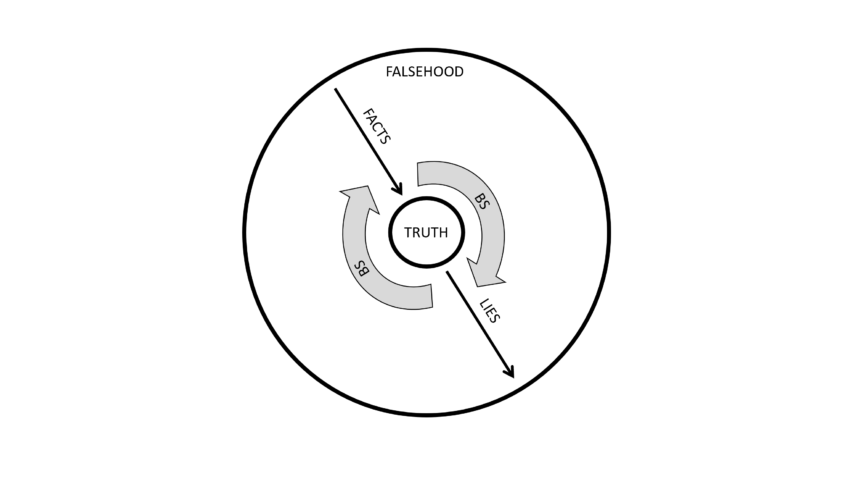I got locked out of my Facebook account quite some time ago and I haven’t bothered trying to jump through the tech support hoops to get back in … and from what Freddie deBoer says, I’m not missing anything at all:
The video, shot on a cellphone from a first-person view, takes place in a bathroom. Embedded at the bottom are the words “what every teenager hides from their parents”. The person holding the phone takes a golf ball and briefly runs it under water from the sink. They then rub the golf ball against a roll of toilet paper, leaving a light impression of moisture. And that’s it; the video ends and starts over again, an infinite empty loop. If you’re wondering what exactly it is that “every teenager hides from their parents”, the answer is nothing. The video is nonsensical, not in some avant garde way but to fulfill its economic purpose. Leaving the viewer confused as to what exactly is being conveyed is a feature, not a bug — the more people are baffled by the video, the more they’ll comment on it to register their confusion, the more times they’ll send it to friends to try and figure out that which cannot be figured out. It is “content”, to use that wretched term, that is devoid of content, a human centipede of virality, monetizing fleeting interest. It’s the inevitable outcome of every bad incentive we’ve created online.
For reasons that are known only to God, for a couple weeks I reflexively watched Facebook Reels videos. It’s something like the bottom of the barrel for internet video, attached to a notoriously uncool social network that has devolved for almost everyone into a never-ending stream of spam, memes, viral bilge, and people that you don’t remotely know. Facebook still boasts a vast user base, but the level of engagement of those users is disputed and the network has become famously unattractive to the youth. Billions use it, including me, but it feels like the dying Rust Belt city of the internet. Facebook makes me feel the way I feel when I’m in a hospital.
The Reels service does do what these platforms are supposed to do in the most basic sense, though — provide brief videos for momentary distraction. I mostly watch shark videos, so it gives me a lot of shark videos. And, in the way of these things, it also serves me videos of crocodiles and orcas, as well as a discouraging amount of ordinary fishing videos. These are of less interest to me than the shark videos, but this is the nature of automated recommendations online. There’s also a lot of unfunny comedy videos, some boring video game clips, videos of animals fighting that sadden me, and of course a lot of hot girl videos, given that this is the internet. There are also many videos that satisfy a particular genre’s conventions, but only just. For example, there’s a mini-genre of big hits from football games (typically captioned “want to see a dead body?”), except that many of the Reels feature perfectly ordinary tackles that no one could mistake for a big hit. But all of these videos attempt, at least, to offer some coherent value proposition, so they aren’t the kinds of videos I’m talking about.
No, the videos I’m talking about here are those that drive people to click and, crucially, to linger through the video until it finishes through confusion and unsatisfied expectations. I’m not talking about bad videos or stupid videos or poorly made videos or videos that I generally find unworthy of being watched; low-quality online content is just the nature of the beast. I’m talking about videos in which the purpose is to drive “engagement” through a given clip’s lack of sense and meaning and nothing else. They’ve taken the monetization of attention to a certain logical endpoint: their creators understand that there are few things people like less than the feeling of being confused, and that most of us will seek help to understand something we can’t figure out on our own. Seeking that help by sharing or commenting gooses the algorithm.
About a decade ago I used to post to a message board a lot, a typical meme and argument repository. A very common prank was to post this one picture of a lizard and say “when you see it!” And tons of people who were in the know would post stuff like “took me forever, but WOW when I found it!” Meanwhile newcomers would be driving themselves absolutely crazy looking for something that wasn’t there, sometimes even confidently announcing that they had found the answer without saying what it was. It was a very effective prank, no matter how many times it was pulled, because we hate, hate, hate “not getting it”. Now some evil geniuses out there have begun to exploit this feeling in pursuit of virality and money. Versions of these tactics have been around forever, but these videos are an immaculately pure form. It’s true, for example, that the “curiosity gap” headline is quite old now. But while curiosity gap headlines at places like Upworthy could be manipulative and misleading, there were actual articles attached to the headlines. These videos are only the headlines, the enticement to click with nothing on the other side.







